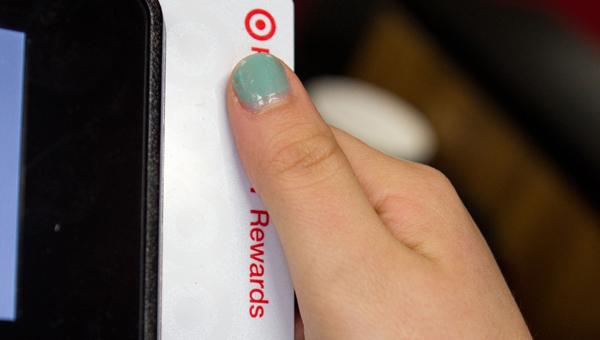“In terms of what we call the underwriting standards, the ability to get a store card in many cases is easier than getting a credit card,” said Robert McLeod, a finance professor and a John S. Bickley Faculty Fellow. “Students who are just starting out, for example, may find it easier to establish credit by getting a card from a merchant or a gas company card. Once they establish credit, it’d be easier to get a conventional credit card.”
With hundreds of options available, McLeod said those looking to get a proprietary card need to consider a few things before making the leap to plastic. Personal spending habits may dictate the success one has in using a credit card of any kind, especially if the card is linked to a favorite store.
“There’s this potential for overspending with any card, so the fact that you have it and it’s at a store that you frequent could result in you spending a little bit more than if you actually reached into your pocket and got out the cash and start counting it out,” he said.
He also said customers should weigh the benefits from a store credit card against their shopping habits at that store, since they might be tempted to spend more at a location if they have a credit card and discounts tied to it.
“Even if you do pay [the balance] off at the end of the month in full and there’s no interest charged on there, your actual expenditures as a consumer over the years may be actually higher than they should be,” McLeod said.
This fear of overspending deters some shoppers from applying for plastic at all. Grace Cunningham, a senior majoring in kinesiology, said the consequences of a potential spontaneous shopping spree influenced her to avoid a credit card.
“I don’t have a credit card because I don’t want to be tempted into going into a shopping frenzy,” she said. “I’m careful about my money, but I just want to make sure that I’m in a steady position before I have a credit card.”
To fight overspending, McLeod suggested marking purchases in a checkbook to keep up with money spent and to know one’s balance after a charge will be paid off.
McLeod said interest rates and the contract as a whole are two other factors shoppers should investigate closely before committing to a card. He said interest rates on proprietary cards are generally higher than a conventional bank card, but if the balance is paid off on time, every time, then the interest rate shouldn’t be a major factor. He also said some contracts offer a “grace period” before interest begins to build, while others simply start charging from the moment of purchase.
“So if you have a choice, you’d rather have one that has a grace period where no interest accrues, no interest is charged until after a certain date so you have the opportunity to pay it off in full before any interest is assessed,” he said.
Many stores offer credit cards with added discounts to establish customer loyalty. Retailers will often offer a percentage off an entire purchase for each card swipe. In addition, some store credit cards have point systems where customers can build up rewards. Target is unique in that they offer a debit card, which ties directly to an existing checking account.
“It comes straight out of my Regions account, so that’s why I liked it,” said Shelby Brooks, a first-year graduate student studying chemical engineering. “Instead of just swiping my regular card I get to save a little bit of money.”
Brooks’ two-year employment at Target played a role in her decision to get a Target debit card. The 5 percent savings with the debit or credit cards are stackable, so Brooks said she was able to use her employee discount, the REDcard savings and additional coupons on things she already bought at Target.
The proprietary debit card might become a more popular option in the future, as it offers a way for customers to receive benefits without committing to a card with interest rates and other fees. Lauren Nida, a senior majoring in advertising and communication studies with a Target debit card, said she thought it was a good move for Target.
“I think more companies should get a debit card [program] because then customers get a discount but they don’t have to have interest or worry about paying it off,” she said.









